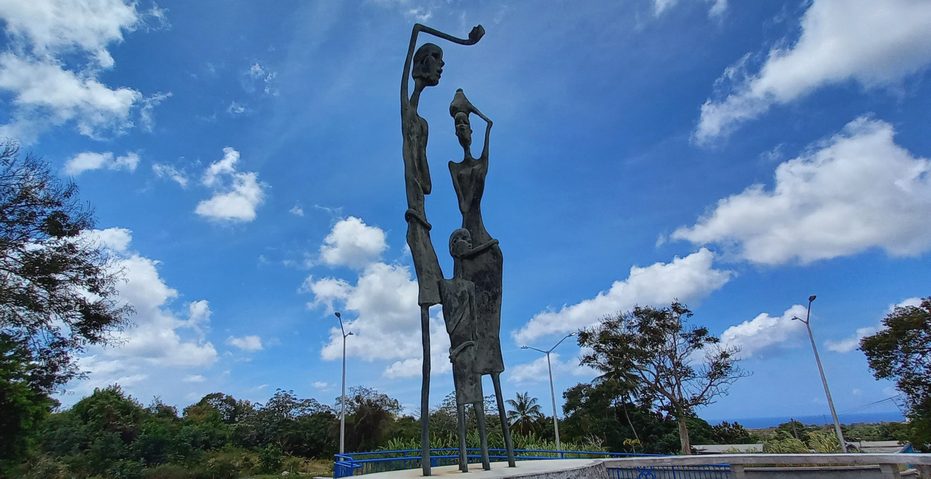Barbados Season of Emancipation
The Season of Emancipation is a time for reflection, education, and celebration commemorating the end of slavery on the island. It runs from April 14th (the Anniversary of the Bussa Slave Rebellion) to late August.
It is estimated that between the 1620s and the 1800s, over 387,000 enslaved Africans were brought to Barbados. They were taken from their homes in West Africa, endured a brutal voyage across the Atlantic, and were forced to work on the island's many sugar plantations under horrendous conditions. Long hours of work, punishment by whippings and beatings, separation from family, overcrowded and unsanitary conditions, and overall exploitation were all part of a slave's life.
Several important dates fall within this period including National Heroes Day (April 28th), Day of National Significance (July 26th), Emancipation Day (August 1st), and UN International Day for the Remembrance of the Slave Trade and its Abolition (August 23rd).
The Season of Emancipation includes a range of events and activities, such as lectures, exhibitions, and cultural performances. It is a time for Barbadians to reflect on the legacy of slavery and the struggles of our ancestors, as well as to celebrate the freedom and the rich cultural heritage that has developed in the years since emancipation.
On August 1st 1834, slavery was abolished throughout the British Empire, including in Barbados. However, the process of emancipation was a gradual one, with enslaved people continuing to work, often for their former slave masters, until August 1st 1838 when they were finally granted full freedom.

The Season of Emancipation is a time to reflect not only on the injustice and suffering of slavery but also on the unbroken spirit of our ancestors, a resilient people who endured the worst of treatment yet emerged triumphant. It is a journey that is still not over, as we strive to tackle remaining social and economic inequalities.
Much of Barbados' cultural heritage, including dance, music and cuisine, is proudly rooted in the traditions and experiences of the country's African descendants.
| Date: 2025 | Event |
|---|---|
| April 14th | Anniversary of Bussa Rebellion "Freedom" re-enactment at Groves Plantation, St Philip |
| April 28th | National Heroes Day Each parish will celebrate one of the island's National Heroes |
| May 1st | May Day (Labour Day) Celebrations by the Barbados Workers' Union and National Cultural Foundation |
| May 25th | Africa Day Celebrations in Golden Square Freedom Park |
| June 1st – June 30th | Heritage Month |
| July 26th | Day of National Significance Celebrations in Golden Square Freedom Park |
| Aug 1st | Emancipation Day |
| Aug 17th | Marcus Garvey Day |
| Aug 23rd | UN International Day for the Remembrance of the Slave Trade and its Abolition |
| Aug 27th | Jackie Opel Day Commemoration |
Symbols of Freedom
 Emancipation Statue - symbolising the breaking of the chains of slavery at Emancipation.
Emancipation Statue - symbolising the breaking of the chains of slavery at Emancipation. Rock Hall Freedom Village - The first freehold village created by former slaves in 1841, just 3 years after full Emancipation from slavery.
Rock Hall Freedom Village - The first freehold village created by former slaves in 1841, just 3 years after full Emancipation from slavery. Newton Slave Burial Ground - Here lie the remains of nearly 600 enslaved men, women & children who toiled and suffered through brutal plantation slavery.
Newton Slave Burial Ground - Here lie the remains of nearly 600 enslaved men, women & children who toiled and suffered through brutal plantation slavery. Monument to the Barbadian Family - Ancestral Barbadian families break open the shackles with strength and determination, making freedom possible.
Monument to the Barbadian Family - Ancestral Barbadian families break open the shackles with strength and determination, making freedom possible. Golden Square Freedom Park - A place for reflection, education and agitation.
Golden Square Freedom Park - A place for reflection, education and agitation. Quaw's Quest - This monument stands tall, not just in stature, but in the story it tells.
Quaw's Quest - This monument stands tall, not just in stature, but in the story it tells.
The Emancipation Statue in Barbados






